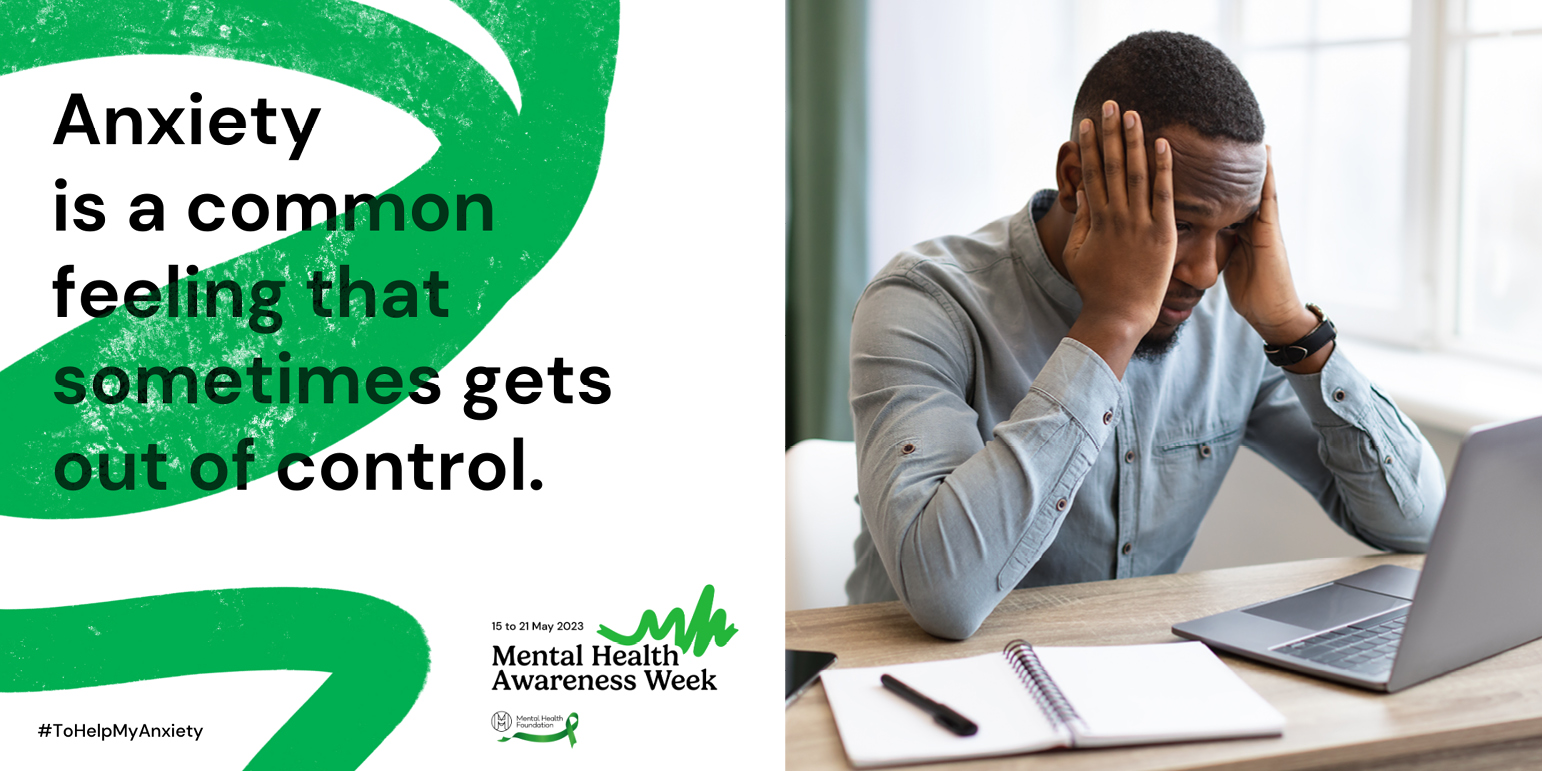Up to 40% off all training courses – use code: BACK0325USA
12 May 2023
Mental Health Awareness Week 2023 – Raising awareness of this year’s theme: Anxiety
Last year, the theme for the annual Mental Health Awareness Week was ‘Loneliness’. A common mental health issue that affects many people globally. This year, the theme is ‘Anxiety’, which is equall...

Last year, the theme for the annual Mental Health Awareness Week was ‘Loneliness’. A common mental health issue that affects many people globally.
This year, the theme is ‘Anxiety’, which is equally prevalent around the world, if not possibly more-so. In the UK alone, 8 million people experience an anxiety disorder at any one time, according to Mental Health UK.
But what is anxiety?
Everyone can experience feelings of worry, anxiety, or fear sometimes, because humans have evolved with an in-built ‘fight or flight response’ for situations or scenarios that could seem dangerous or risky.
But if someone starts to feel anxiety more often or continuously, and it starts to impact day-to-day life, then this could be due to an anxiety disorder.
The symptoms of an anxiety disorder
According to Mental Health UK, there are numerous symptoms that someone may feel, but it’s also important to note that not everyone will experience the same ones. And anxiety can cause physical and mental symptoms, or both.
Some mental symptoms of anxiety can include:
- Racing thoughts
- Uncontrollable over-thinking
- Trouble concentrating
- Feelings of dread, panic or ‘impending doom’
- Feeling irritable
- Heightened alertness
- Trouble sleeping
- Changes in appetite
While some physical symptoms of anxiety can be:
- Sweating
- Heavy and fast breathing
- Racing heartbeat
- Hot flushes and blushing
- Dry mouth
- Shaking
- Hair loss
- Extreme tiredness or lack of energy
- Headaches, dizziness and fainting
- Stomach aches, nausea and sickness
Anxiety – the theme for Mental Health Awareness Week 2023
The week takes place from 15-21 May this year, and Alexa Knight – Director of England at the Mental Health Foundation, said the theme for this year is anxiety because:
“We’ve chosen anxiety as the Mental Health Awareness Week theme this year to kickstart a nationwide conversation, encouraging people to share their own experiences and any helpful ideas on how they manage anxiety.”
How can you cope with feelings of anxiety?
Being able to cope with feelings of anxiety can be hard for some people. Here are a selection of techniques that The Mental Health Foundation has suggested (the full list can be found via the link):
- Focus on breathing
There are other breathing techniques which people can do, but an effective one is the ‘4-7-8 breathing technique’. You need to breath through your nose, counting to 4 in your head, then hold for a count of 7 and breathe out for 8.
- Get moving
Exercise is a really good way to help anxiety, and it can be anything from a yoga class, long walk or swim to taking part in a fitness class or joining a sports club.
- Keep a diary
By keeping a diary of the times you feel worried or anxious, you can start to recognise when or what is triggering these feelings – which helps you prepare and manage situations in the future. Also, some people may want to set a ‘worry time’, where you write your worries down, before you start your day or complete other tasks.
- Get support for money worries
Money worries are a common cause of anxiety. But with the current cost-of-living crisis, increasing interest rates, higher bills and food inflation at an all time high, this is undoubtedly going to be causing many people anxiety.
There are many places where people can get help, including Citizens Advice or StepChange and some resources on the Mental Health Foundation site: How to cope with cost-of-living pressures and information on where to get practical support.
- Spend time in nature
Spring is here and with summer around the corner, getting out in nature is also a great way for people to feel calmer and less stressed, as it has a positive impact on our mental health. Spending any amount of time will have a benefit, but it is recommended that an hour or longer will help.
You can also download this guide which the Mental Health Foundation developed in collaboration with WWF-UK.
Why do we feel it is important to talk about anxiety at ILX Group?
As outlined above, many people could be feeling anxious about financial issues. However, according to Bupa, workplace-stress can also cause people anxiety.
This is why we have:
- Over 20 trained Mental Health First Aiders, who have access to a wealth of resources to support employees, including guidance on the different types of anxiety disorders
- A dedicated Welfare Officer
- Published a blog in support of Stress Awareness Month last month
And are raising awareness of Mental Health Awareness Week again this year, by sharing the Mental Health Foundation’s resources via this blog, including ways you can get involved and ‘Wear it Green Day’ on Thursday 18 May!
We also ran a webinar last year called ‘Understanding and overcoming anxiety and loneliness’, which you can listen back on.